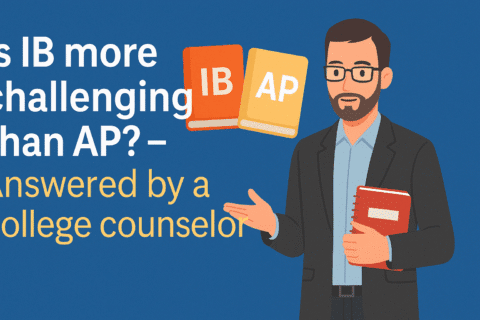Let me start with this: I’ve seen students cry over an AP score. I’ve watched them refresh their College Board dashboard like it’s a stock ticker. I’ve talked to parents who panic when they see a 2—or worse, a 1—flash across the screen.
So if you’re sitting there thinking, “What if I fail my AP exam?” — this guide is for you. Not just to answer your question, but to remind you of something way more important:
You are more than a number.
Now let’s dive deep into the truth, clarity, and maybe a few surprises about what really happens if you don’t pass your AP exam.
💥 Chapter 1: Let’s Define “Failing” First
Here’s the thing: The AP exam is graded on a 1–5 scale.
5 = Extremely well qualified
4 = Well qualified
3 = Qualified
2 = Possibly qualified
1 = No recommendation
Colleges typically consider a 3 or higher as a “pass”—but some top-tier schools only grant credit for a 4 or 5.
So if you got a 1 or 2… technically, that’s considered “failing” in terms of college credit. But academically? Emotionally? Humanly?
We’re going to reframe that.
😱 Chapter 2: What Actually Happens When You Fail an AP Exam?
Here’s what doesn’t happen:
Your high school GPA doesn’t drop.
Your teacher doesn’t fail you.
You don’t get kicked out of college.
No one calls your parents.
Seriously. It’s not like that.
Here’s what does happen:
You don’t get college credit for that course (in most cases).
You might not place out of intro classes in that subject.
You’ll probably feel frustrated or disappointed (and that’s normal).
“I got a 2 in AP Chem and I still made it to med school.” —One of my students, now a 2nd-year resident
🧠 Chapter 3: Do Colleges See Your AP Scores?
Ah yes, the golden question.
Short answer: Not unless you send them.
When you apply to college:
You self-report your AP scores (if you want to)
You can choose to leave out low scores
Colleges usually only require official score reports after you enroll
Translation:
Bombed one exam? Just don’t report it.
“Students are not penalized for lower AP scores. We look at overall academic rigor and performance.” —UCLA Admissions
In other words: your 1 in AP Physics doesn’t cancel out your 4.0 GPA.
🎓 Chapter 4: What About Your Transcript?
Important clarification:
Your AP course grade is separate from your AP exam score.
You can fail the AP exam but still get an A in the class.
Colleges look at your transcript more closely than your test scores.
So don’t panic if you crushed the coursework but froze on test day.
That “A” still says: This student pushed themselves.
🤯 Chapter 5: Emotional Fallout — What It Feels Like to Fail
This is the real stuff no one talks about.
Failing an AP exam can hit hard.
You might feel ashamed.
You might doubt your intelligence.
You might compare yourself to friends who scored 5s.
Let me just say this:
AP exams test performance, not potential.
I’ve seen brilliant thinkers score low because:
They had test anxiety
They had a bad day
They worked a part-time job and barely slept
They had a learning difference that the AP format didn’t support
None of that defines you. It just means you’re human.
🔁 Chapter 6: Can You Retake the AP Exam?
Yes! But here’s what you need to know:
You can retake the exam the following year (in May)
You don’t have to retake the class
You’ll have to pay the exam fee again (~$100)
When does retaking make sense?
If the score is holding you back from college credit that saves tuition $$
If you know you can crush it with more time
If you want redemption (for yourself, not others)
But truthfully? Most students don’t retake unless it’s for a critical subject.
🛠 Chapter 7: What You Can Do With a Low Score
Instead of spiraling, here’s how to turn that 1 or 2 into something powerful:
1. Use it in your college essay
“I bombed AP World History. But that failure taught me more about resilience than any textbook ever could.”
Boom. You just owned it.
2. Explain the context in the Additional Info section
Did your family face hardship? Were you juggling too much? It’s okay to say so.
3. Pivot to your strengths
Ace your next AP class
Show mastery through other projects (e.g., science fairs, research, internships)
📚 Chapter 8: What AP Exams Actually Prepare You For
Even if you don’t pass, you still gain:
College-level reading/writing experience
Test-taking endurance
Time management skills
Confidence (even if it comes later)
Bonus: Some colleges still let you place out of courses with a low AP score if you prove yourself in person.
And hey—even if you don’t get the credit, the prep makes your first year of college way less intimidating.
💡 Chapter 9: Is the AP System Flawed?
Hot take: Maybe.
Not everyone thrives in a standardized, test-heavy format.
The AP scoring curve is weird (looking at you, APUSH)
Not all teachers prep students well
Socioeconomic factors absolutely influence who scores well
If you struggled, you’re not broken. The system might be.
🔥 Chapter 10: Stories from Real Students Who “Failed” and Still Thrived
Olivia, AP Calc AB (Score: 2)
Now: Double majoring in Math + Theater at Northwestern
“That exam didn’t reflect my growth. But the class? It gave me the work ethic I needed to survive college.”
Jay, AP Bio (Score: 1)
Now: Accepted to med school
“I panicked. But it made me double down the next semester—and now I tutor AP students.”
Sasha, AP Lit (Score: 2)
Now: Publishing her second novel
“Writing was never about scores for me. That test made me realize that.”
🧩 Chapter 11: When Should You Worry About a Low AP Score?
Honestly? Rarely.
But it could matter if:
You’re applying to highly selective STEM schools and got a 1 on AP Calc BC
You report all scores and they show a downward trend
You claimed a certain strength (e.g., pre-med) and have multiple science AP scores below 3
In those cases, it’s worth offering context or evidence of growth elsewhere.
🛡 Chapter 12: How to Bounce Back
Reflect – What tripped you up? Content? Format? Mindset?
Reframe – This wasn’t failure. It was feedback.
Rebuild – Take a class you love. Prove to yourself that this didn’t define you.
Reset – Next AP class? Treat it like a comeback tour.
✅ Final Chapter: You Failed an AP Exam… So What?
Here’s the truth:
You’re still college material
You’re still smart
You’re still capable of great things
This one score? It’s just one pixel in your high school mosaic. Not the whole picture.
You failed an AP exam. So what?
Now go pass the next challenge—with your head high, your humor intact, and your story still unfolding.


